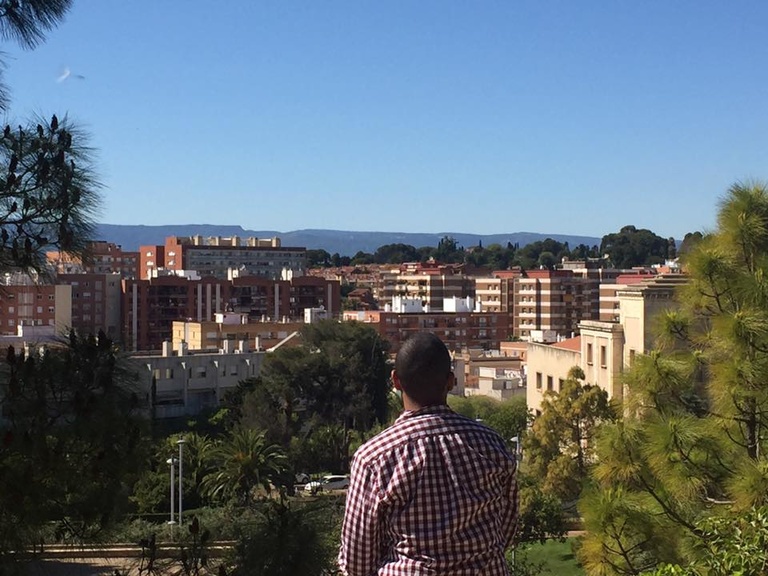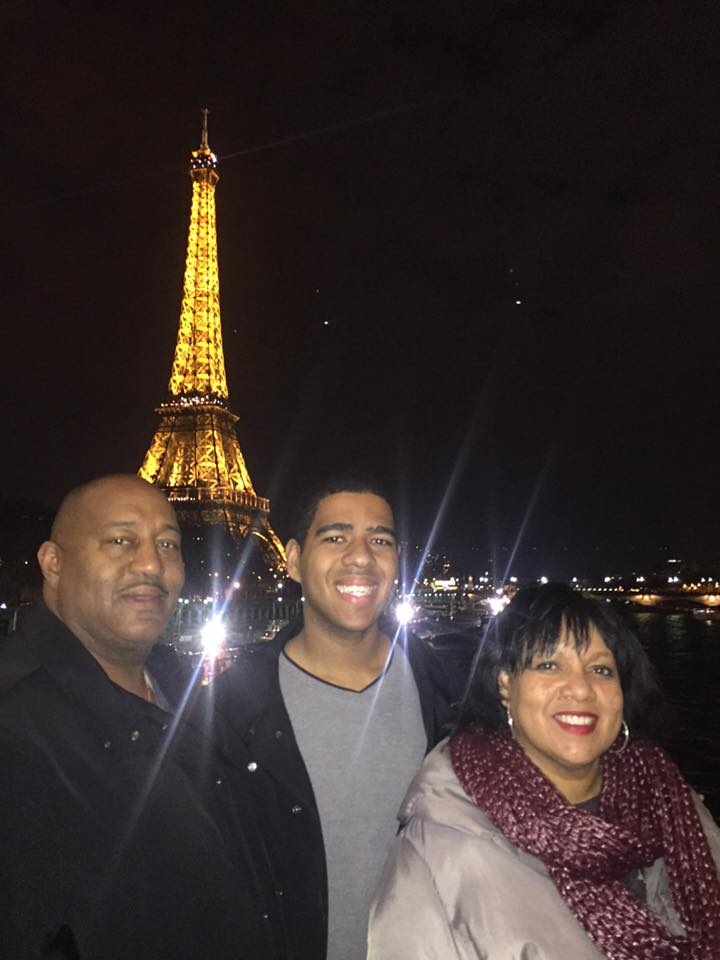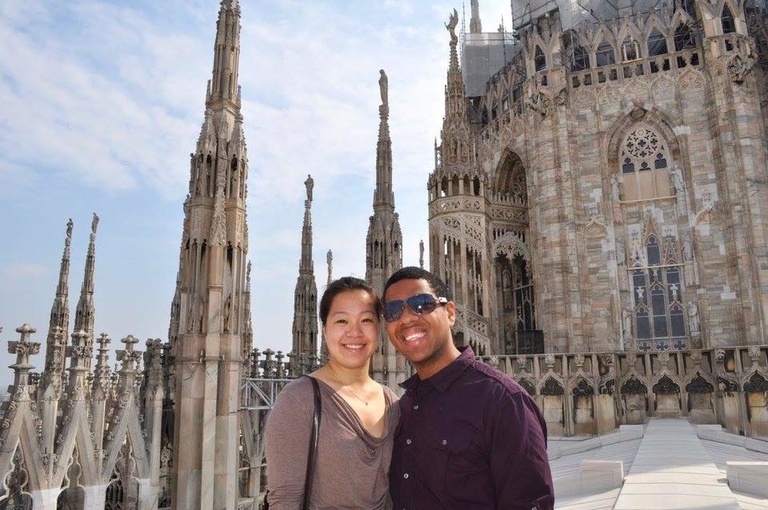
The beautiful city of Tarragona, Spain.
By Marcus Smith*
I literally heard an American tourist borderline yelling this at a Spanish employee during my recent trip to Barcelona, as if speaking louder and slower would make someone who did not understand the language magically be able to comprehend it.
During my travels around Europe, it has been eye-opening to navigate different languages and different cultures, and it has made me aware of just how prominent our English-speaking complex is. We automatically assume that no matter where we are in the world, the people there will speak English even if it is not their nation’s language (I was guilty of this during my first trip to Germany). There is some truth behind this statement though, as the majority of people I have encountered in non-English speaking countries do speak English, many very fluently. Nonetheless, I now try my best to communicate in the native language in whatever country I’m in, and it is definitely not as hard as I thought it would be.

At the Eiffel Tower in Paris with my parents.
I stayed in an Airbnb with a French family in Spain, and I was amazed how the two kids, age 14 and 16, could both speak 4 languages. I asked if they learned English in school, and the daughter responded, “Of course. We learn English very young, because it is needed to get most jobs.” I couldn’t help but feel guilty at her response, for it’s as if the whole world is forced to learn English because we are too lazy to learn any other languages. She then elaborated and explained how English is treated as a common ground language in Europe. Since there are so many countries so close together that speak different languages, everyone learns English so that they are able to communicate with each other across borders without having to learn dozens of languages. It makes sense, and it made me feel a little less guilty and just lucky that most people know my language!
That being said, I have had conversations with several people who did not speak English. Many older people and people in smaller, less touristy, cities do not speak English. I went to Tarragona, the old Roman capital about an hour outside of Barcelona, and I had to rely on my four years of high school Spanish to get around. I had to use many hand gestures and pointing, but overall it was easier at it than I thought it would be! (Gracias a todos mis maestras de Español!) From my experiences, I gathered that people are nicer when you attempt to speak to them in their language, for it shows that you have respect for their native culture and have made an effort to embrace it.
A bilingual museum curator in Spain was very eager to help me practice my Spanish because I approached him in Spanish, and I was surprised by how nice he was to me. I have witnessed several instances in the U.S. where locals are impatient and rude to foreigners who speak broken English, which I now find even more ridiculous given that if the roles were reversed most Americans would expect the locals to be accommodating to them.
In Scotland, they obviously speak English, but I have had some funny gaffes with the slang in the beginning of the semester. For example, the word “queue” means “to wait,” and when a store clerk told me to queue to the right for the first time I looked at him like he was crazy. Also, “fancy dress” is the equivalent to “costume,” so it was a good thing that a local student alerted me of the difference or else I would have shown up to a fancy dress party in semi-formal attire, which would have been pretty awkward. I also realized how much slang is ingrained in my dialogue, and found myself explaining my dialect a lot to my new friends, especially those who English was not their first language. Between contractions, odd pronunciations, and endless slang phrases, I have a newfound admiration for those who speak English as a second language, because it is quite a difficult language.

On the roof of the Duomo Cathderal in Milan, Italy.
This trip has really encouraged me to pursue different languages, for there are so many more opportunities available when you can communicate with more people. It is unlikely to be fluent in multiple languages, but if you are going to a country where you do not speak the language, I would recommend learning how to say “hello,” “goodbye” and “thank you.” You would be surprised at how far this could get you. At the bare minimum, learn how to say “do you speak English,” for it is viewed as rude to go up to someone and automatically assume that they speak your language. Like I said before, most people speak English, but confirming it before you speak to a local will truly show your respect and character, which many Europeans perceive Americans as lacking.
Thanks for reading! (Gracias! Merci! Danke! Grazie!)
*Marcus Smith is a sophomore studying political science as well as ethics and public policy at the University of Iowa.. The Bolingbrook, Illinois, native is spending his semester on the Institute for Study Abroad at Butler University program in Edinburgh, Scotland.
Student blog entries posted to this International Accents page may not reflect the opinions and recommendations of UI Study Abroad and International Programs. The blog is intended to give students a forum for free expression of thoughts and experiences abroad in a respectful space.